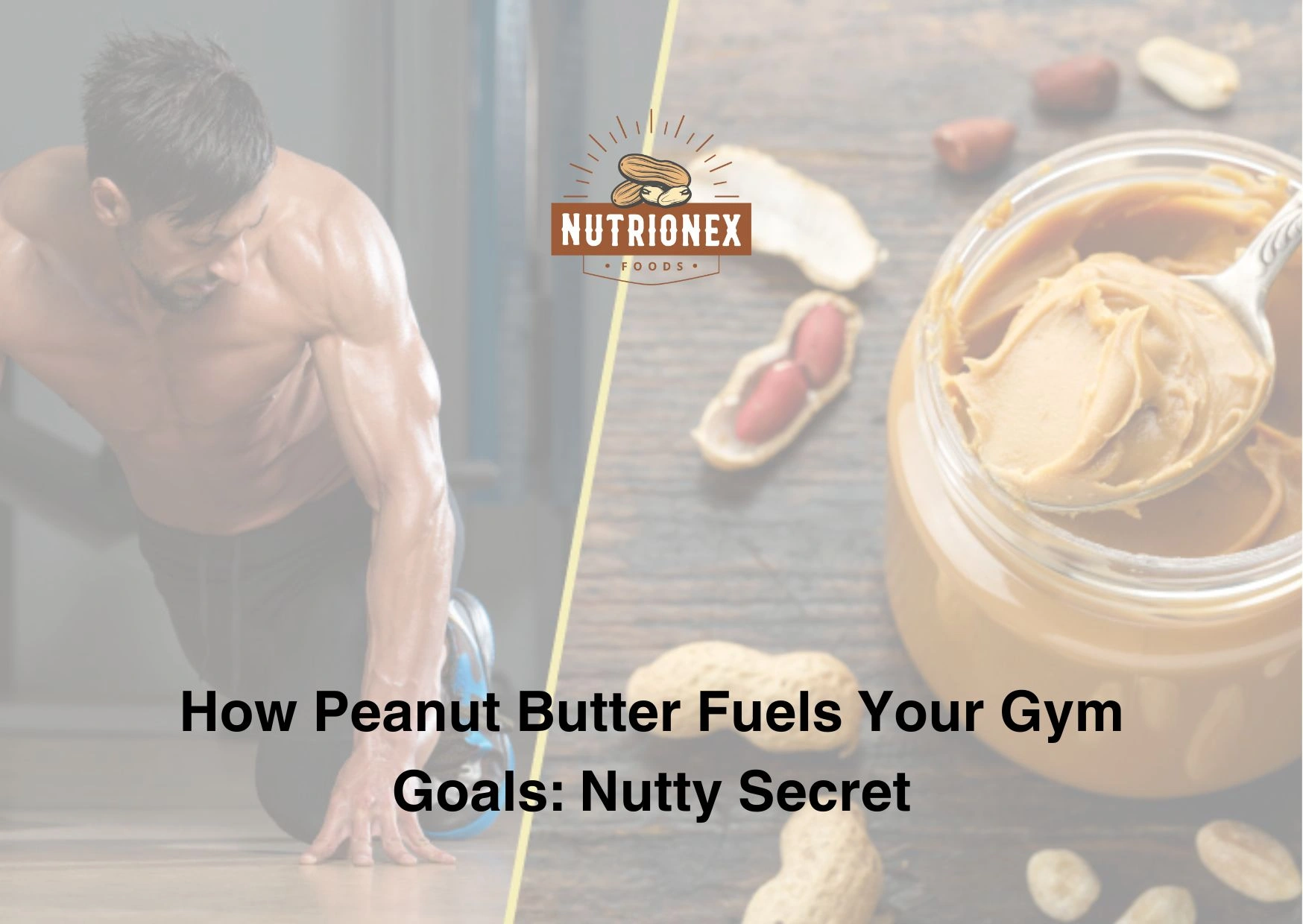
How Peanut Butter Fuels Your Gym Goals: The Nutty Secret
Since early ages, peanut butter gained its popularity for its delicious taste and smooth consistency. But besides the tasty purpose of using it in preparation of local dishes, peanut butter is slowly revealing itself as a very nutrient dense ‘power’ food to support fitness and sports individuals. Blessed with compact nutrients, it is a suitable and efficient energy provider to support your gym regime. Here and in the following sections, we’ll explore the health and nutritional implications tied to peanut butter and food combinations important to athletic performance and muscle recovery.
The fact that peanut butter compliments almost any food group, and it’s nutritious makes it a favorite among fitness enthusiasts. It includes a very fast and easy way of energy that is plus suitable for those who lead an active life. Peanut butter is very healthy as it has more nutritional value that will make anyone who exercises enjoy it. Here’s the nutritional profile of peanut butter in table format, excluding % Daily Value:
Benefits of Peanut Butter for Gym Enthusiasts
.webp)
1. Protein Power: It is useful in the rebuilding of muscle fibres after development particularly after exercise sessions. Peanut butter contains about 8 grams of protein per 2 tablespoons, meaning that it should be a part of any muscle gaining diet plan.
2. Energy Source: The nutty spread is packed with healthy fats which have a slow digestion process hence allows for constant release of energy. This is made up for by its carbohydrate content which provides an instant energy surge – ideal for moments leading up to exercise.
3. Satiety: Peanut butter suppresses hunger because it contains proteins as well as fats and fiber. Due to this, it serves as a perfect solution for those who want to implement proper dieting or fighting with snacking on unhealthy products.
4. Rich in Micronutrients: The mineral magnesium helps muscles relax and reduce muscle soreness, at the same time, potassium reduces muscle cramps. These are the reasons why peanut butter is a universal recovery food.
5. Portable and Convenient: Regardless of whether you’re at home or out and about, it’s simple to incorporate peanut butter into your pre or post workout meals. Because of its high usability and durability it can be an ideal choice.
Peanut Butter Power: Unlocking Protein for Muscle Recovery
This food is useful in replacing the muscular tissue as well as repairing the tissues that have been torn during an intense training session. Muscle tissue damage occurs when exercising, especially if you engage in resistance training exercises you make tiny micro tears in the muscle fibres. Protein is also crucial in mending these tears so as to cause muscle hypertrophy (growth).
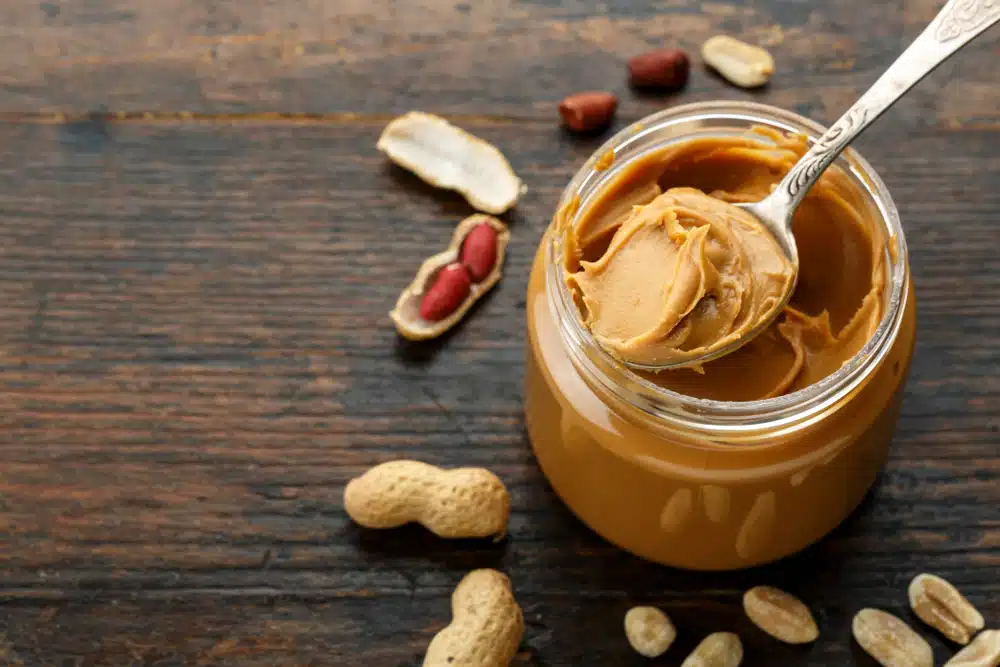
Peanut Butter as a Protein Source
Despite the fact that peanut butter is often recognized as a protein food, it contains all the nine essential amino acids when taken with other foods. This makes it a perfect fit for the vegetarian or anyone who may not willingly take animal products or is looking to diet with different protein sources. The protein peanut butter aids in:
-
Recommended Intake: People participating in weight training or exercising vigorously need about 1.6 - 2.2 gm protein per kg body weight. The consumption of peanut butter can contribute towards your attaining this goal in a very easy way.
-
Muscle Recovery: Taking protein powders after exercises aid in building new muscle cells in the body since muscles are sore after exercising.
-
Muscle Synthesis: Sufficient protein intake increases the activity of the muscles’ development since proteins are vital in muscle construction.
Fueling Energy: The Healthy Fats in Peanut Butter for Endurance
Fats are a nutrient that are essential, indispensable for providing energy for cells, protecting cells and organs, and helping the body absorb vitamins. To the athletes and the other energetic persons the fats are essential because they are a dense source of energy.
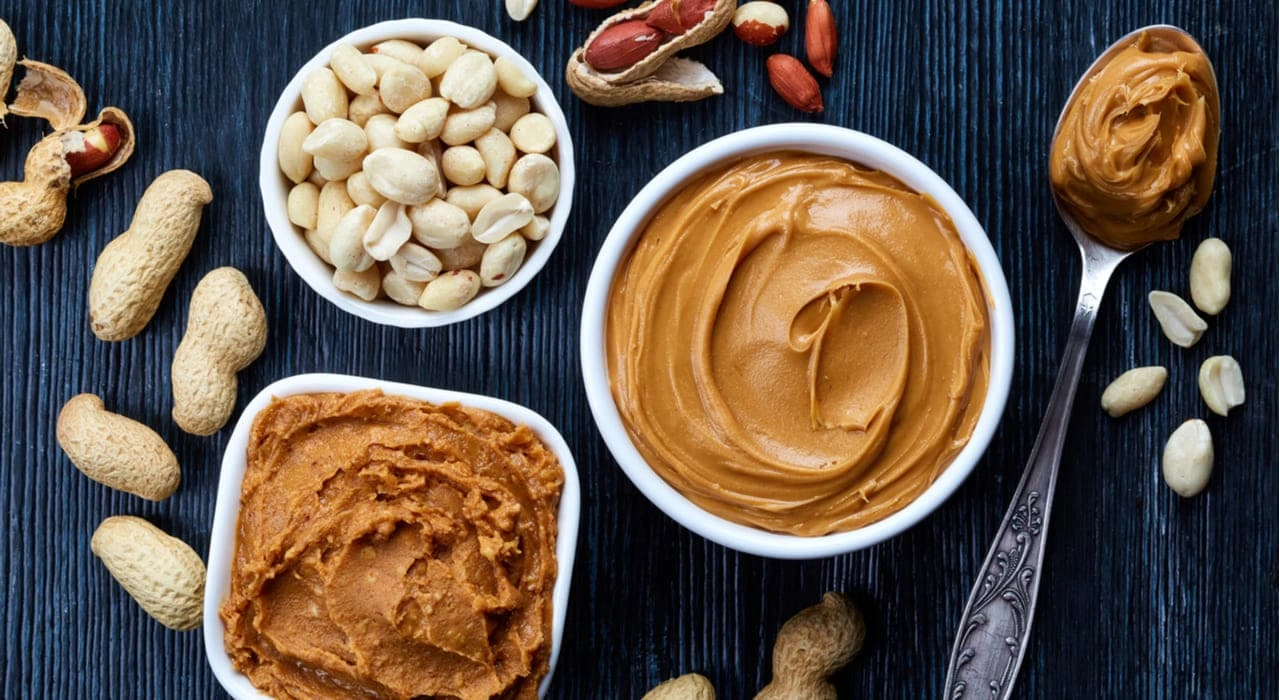
Benefits of Healthy Fats
It is also tasty, easily digestible, and contains monounsaturated fats which are good for the heart and are also energy sustaining fats. Complicated carbohydrates unlike simple sugar highs that leads to energy drain or crash, energize muscles more sustainably in the same way that healthy fats from peanut butter energize our workouts.
-
Sustained Energy: The slow digestion of fats help in giving a steady energy in cases of workouts.
-
Hormonal Balance: One of the benefits of consuming healthy fats includes the ability to support the synthesis of hormones and muscle building hormone, testosterone in particular.
-
Nutrient Absorption: Body got energy and fat-soluble vitamins (A, D, E, K) vitamins are well absorbed because fats assist in their absorption.
Peanut Butter Perks: The Role of Carbs and Fiber in Performance
Carbohydrates are sources of energy for the body considered to be the most important nutrient. When exercising at high intensity, the muscles depend on glycogen as the source of energy, glycogen is simply carbohydrate stored for use. Note that peanut butter is not chiefly a source of carbohydrates; however, a little amount can be found to be usable. Thus, carbohydrates stored in the body should be replenished, most preferably before doing a set of exercises. It is important to replace the glycogen stores after a workout session or training is complete.
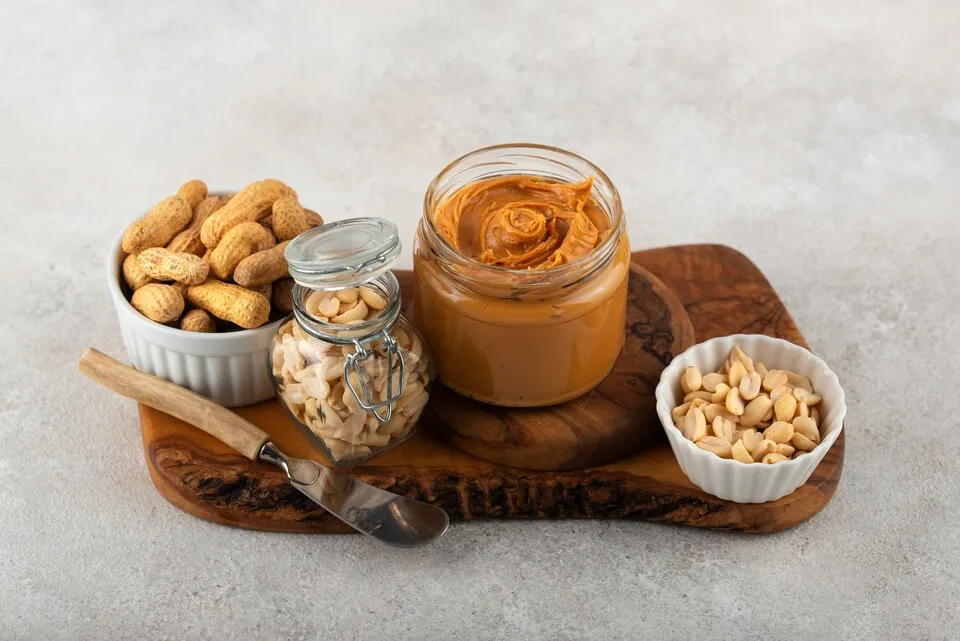
Importance of Fiber
Fiber in the peanut butter helps to make digestion easier and also prevents the stomach from feeling empty. Including fiber-rich foods in your diet can help control appetite and prevent overeating:
-
Digestive Health: Fiber plays a great role in enhancing gut health by helping the body to have a bowel movement.
-
Satiety: Dietary fiber allows one to stay full for a longer time especially if you are watching your weight.
Pre-Workout Nutrition with Peanut Butter
The last and a very important factor to do with timing and body exercise is that the intake of foods and beverages influences performance as well as the recovery of muscles worn out in body exercises. You can be able to take peanut butter before exercising to get the energy needed to get through the entire session.
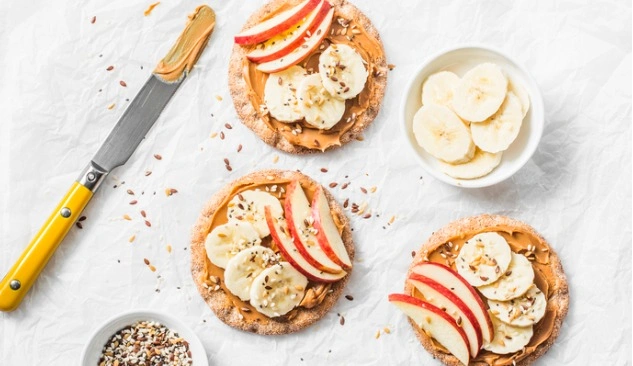
Ideal Pre-Workout Combinations
Here are some effective ways to include peanut butter in your pre-workout meal:
-
Peanut Butter Toast: Consumer whole grain toast or rice cakes with peanut butter and sliced bananas for a carbohydrate and healthy fatty meal.
-
Smoothies: Mix peanut butter with bananas or berries for additional health boosting and mix it with spinach or kale for a great energy supplement in your smoothie.
-
Oatmeal Bowl: To improve delicious and make oatmeal have nutraceutical value, adding peanut butter to oatmeal not only eases the taste bud but equally contains proteins and fats, which help in maintaining the energy required in vigorous exercises.
Benefits of Pre-Workout Peanut Butter
-
Energy Boost: While the carbohydrates from bread or fruit keep you going in several hours, the healthy fats in peanut butter give continuous energy.
-
Mental Focus: The nutrients which are present in the peanut butter ensure that the workout is concentrated on and hence very useful.
Post-Workout Recovery with Peanut Butter
Eating foods and supplements after the workout prepares the body for muscle rebuilding process. They will understand that muscles require some sort of intake after exercising in a bid to stock glycogen and get the muscles built up again.
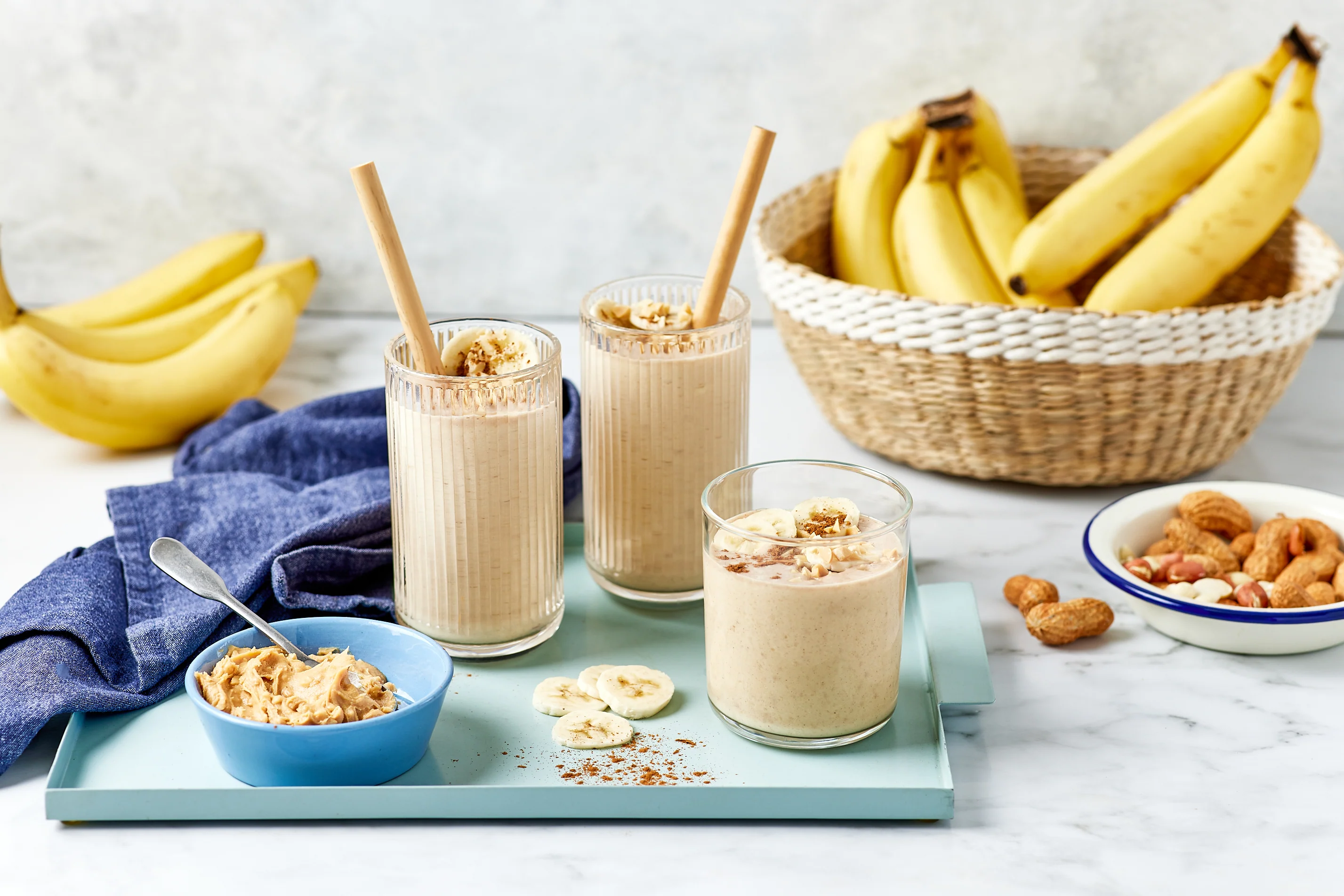
Top Pairings for After a Workout
Incorporating peanut butter into your post-workout meals can enhance recovery:
-
Peanut Butter Banana Smoothie: Whisk together banana, Greek yogurt (for extra protein), milk (or milk substitute), and peanut butter for a smashing shake you can have post workout.
-
Rice Cakes with Peanut Butter: Consuming rice cakes as an occasional, late-night snack can be a handy option if opting for peanut butter and sliced strawberries or blueberries for the little carbohydrate and protein boost.
-
Peanut Butter Energy Balls: Combine rolled oats, honey, chocolate chips and peanut butter to make the no-bake energy balls and they can be prepared in advance.
Benefits of Post-Workout Peanut Butter
-
Muscle Repair: They used the protein to repair muscle damage that was caused through exercise.
-
Glycogen Replenishment: Consuming it along carbohydrates allows for replenishment of glycogen stores in the body fast.
-
Reduced Muscle Soreness: Protein and healthy fats from peanut butter may also minimize post workout soreness thanks to its anti inflammatory contents.
How to Incorporate Peanut Butter into Your Gym Routine
Incorporating peanut butter into your daily routine doesn’t have to be complicated! Here are some practical tips:
-
So eating peanut butter doesn’t have to be a chore, as it can be quite easily worked into your everyday meals! Here are some practical tips:
-
Have it with a piece of toasted whole grain bread with some spread or with a banana. These four supply the body with carbohydrates – for immediate energy and fats for steady, sustained energy.
-
You can mix a spoonful of peanut butter in your protein shake or even put it in oatmeal. It helps replenish the glycogen, and assists in muscle repair.
-
Eat peanut butter spread with an apple or celery for a hunger quelling, tasty, and nutritious snack.
-
Blend peanut butter into some creamy smoothies or other energy balls, or send it savory into sauces for stir fry dishes. These recipes are both tasty and healthy and filled with the essential nutrients the body needs.
Comparing Peanut Butter to Other Fitness Foods
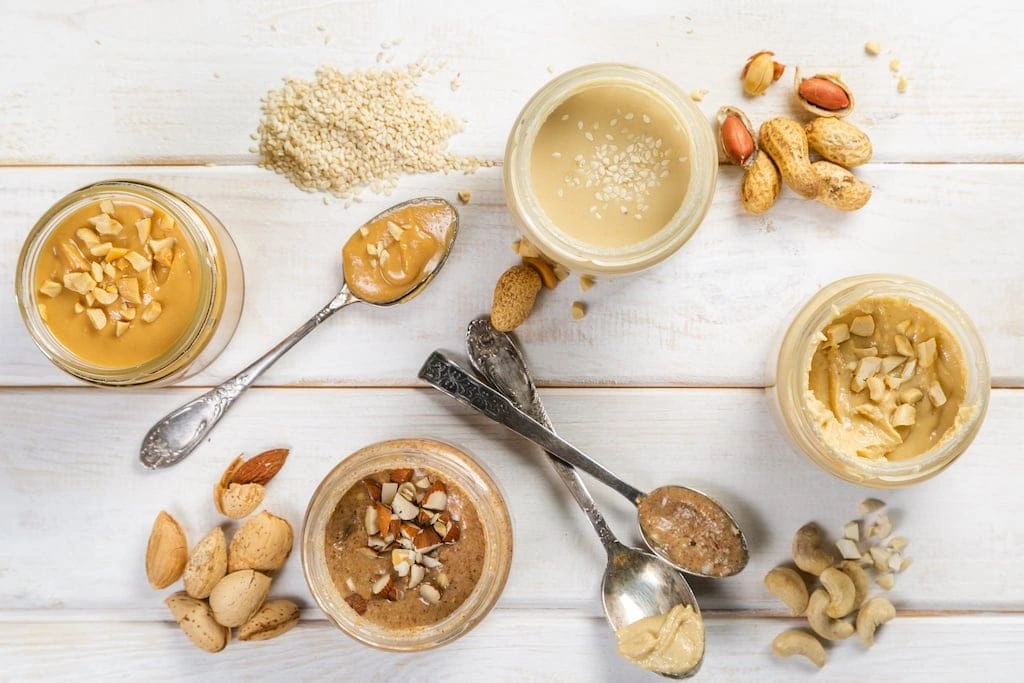
Peanut Butter Vs Almond Butter
As compared to Goldmine margarine, peanut butter is cheaper and has .1 grams more protein per serving. Almond butter on the other hand contains higher levels of vitamin E than peanut butter.
Peanut Butter Vs Protein Bars
Peanut butter is recommended over protein bars because it is a natural product that has not gone through as many processing procedures as other protein bar products which contain added sugars and preservatives.
Conclusion
Not only is peanut butter tasty for a snack, it also is full of nutrients and can help you reach your gym objectives. Containing vitamins for muscle building, fats for energy and minerals such as magnesium and potassium, peanut butter is its own food group when it comes to supporting any fitness training. It’s a perfect snack before or after workout or as a part of the meal – peanut butter provides the energy the muscles need to function at their best. Add this nutty dynamite in your exercise regimen and get the flavor, nutrition and outcome all in one! For the next level in your workouts you are ready? Check out our deluxe peanut butter here in Nutrionex Foods and enhance your energy towards workouts!
FAQs
1. Is peanut butter good for weight loss?
Yes, when consumed in moderation, peanut butter’s nutrient density and satiating properties can support weight loss.
2. How much peanut butter should I eat per day for fitness goals?
Stick to 1-2 tablespoons per day to balance calorie intake with fitness objectives.
3. Can I eat peanut butter every day?
Absolutely! Daily consumption is fine as long as it fits into your overall caloric and nutrient goals.
4. What are the best pre and post workout peanut butter recipes?
Pre-workout: Peanut butter and banana on toast. Post-workout: Peanut butter protein smoothie.
5. Are there alternatives to peanut butter for people with allergies?
Yes, options like almond butter, sunflower seed butter, or tahini can provide similar benefits.
